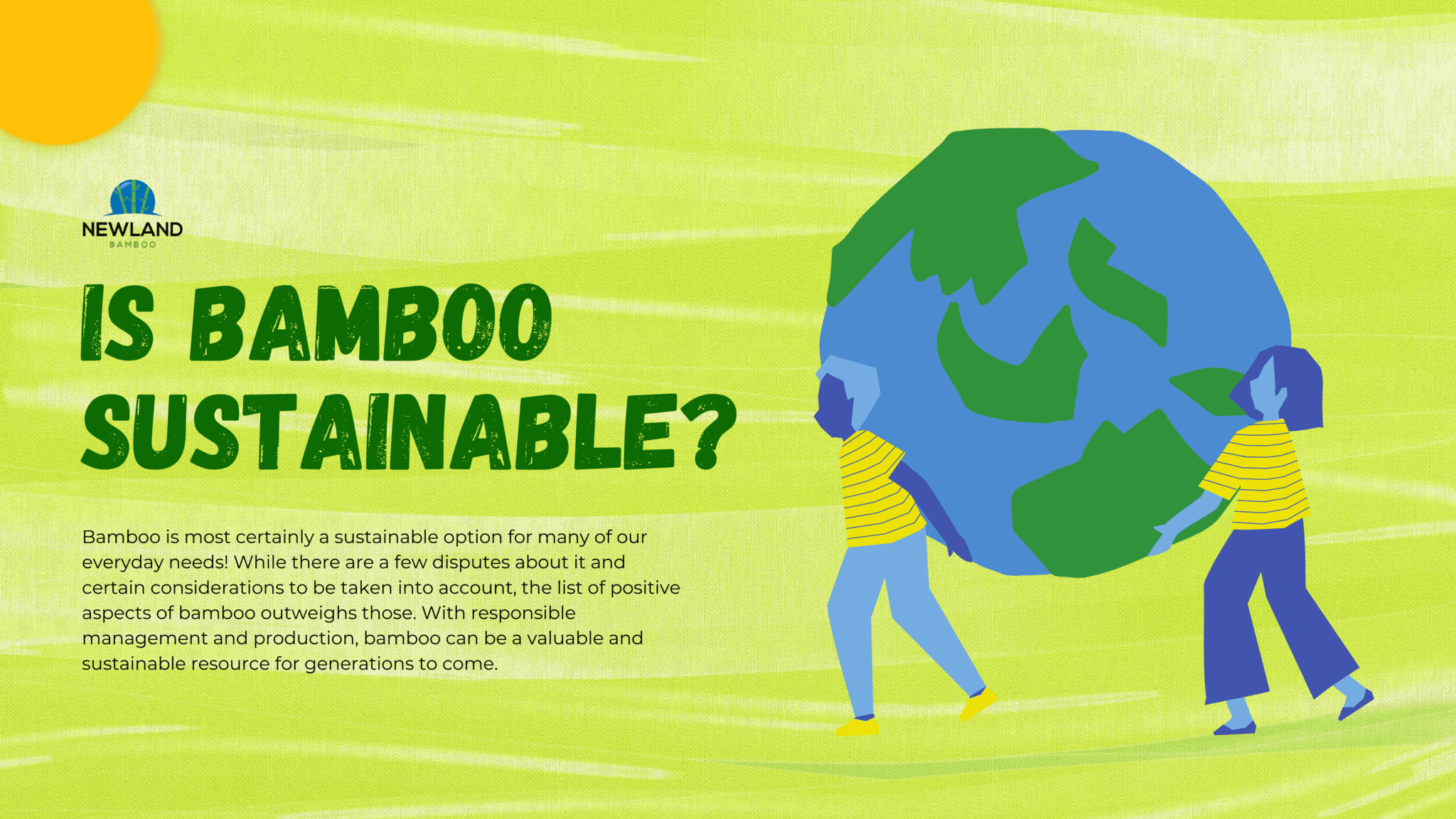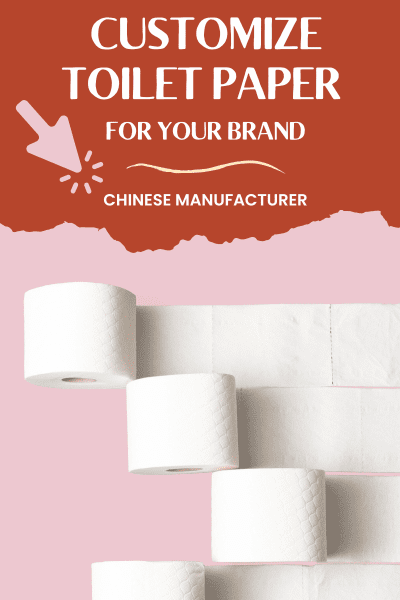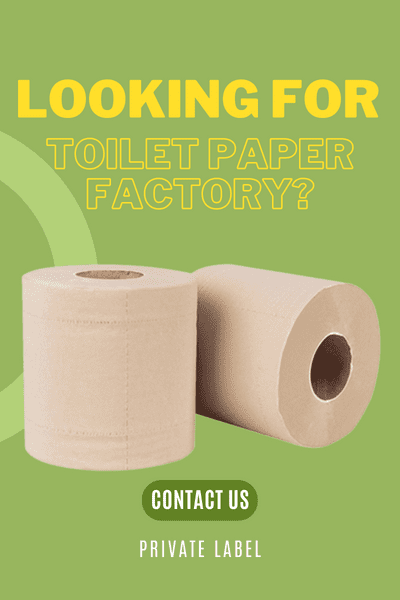
Is Bamboo Sustainable?
May 26, 2023
In recent years, bamboo has captured the attention of many sustainability enthusiasts and eco-conscious consumers. This versatile plant offers an array of benefits, ranging from its ability to grow quickly to its potential to replace materials that harm the environment. Despite these positive traits, however, some remain skeptical about whether bamboo is truly sustainable.
So, is bamboo sustainable? Yes! Undoubtedly, bamboo is a sustainable resource - a fact that cannot be denied.
Our blog post will explore this topic in depth, covering everything from the characteristics of the plant to the intricacies of its supply chain, to shed light on whether bamboo is a genuinely sustainable option.
Table of Contents
Why is Bamboo Sustainable?
It's no secret that bamboo is a giant grass that can grow incredibly fast. In fact, bamboo has a growth rate of up to 91 cm in just one day, making it one of the fastest-growing plants in the world. Unlike trees, which can take decades to grow to a harvestable size, bamboo can be harvested every one to three years. This makes bamboo a highly renewable resource that requires no fertilizers or pesticides to thrive. The rapid growth rate makes bamboo an attractive option for sustainable resource management.
Another main argument for bamboo being sustainable is that it doesn't require replanting. Once harvested, the root system remains intact, allowing new shoots to grow rapidly. In comparison, traditional hardwood forests may need to be planted to slowly grow and often need to be cut down to plant new trees. The growth and receipt of bamboo do not depend on harmful chemicals or heavy machinery. This feature is particularly significant since it helps to reduce the carbon footprint of bamboo production, offering a more eco-friendly option for businesses and consumers looking for sustainable alternatives.
Apart from being rapidly growing and renewable, bamboo also plays a significant role in reducing carbon emissions and combating climate change. It is estimated that bamboo has the potential to absorb up to 12 tons of CO2 per hectare annually. This is a crucial function as carbon dioxide is a primary greenhouse gas that is contributing to global warming and climate change. Bamboo's carbon sequestration abilities make it a crucial player in mitigating the impacts of climate change. On top of that, bamboo plants release large amounts of oxygen, making them an excellent source of natural air purification.
Another important point is that the growth of bamboo consumes fewer resources. This hardy grass-family plant requires very little water to grow, making it an excellent option for regions experiencing drought. In fact, bamboo requires up to 30% less water than hardwood trees, making it a low-maintenance yet efficient crop. Additionally, bamboo is capable of thriving in soil that is nutrient-poor and it requires less land, nutrients, and pesticides to grow than many other crops.
Some disputes about the sustainability of bamboo!
We all know that bamboo is a sustainable material, but there are still many arguments about whether bamboo & bamboo products are sustainable or not. It is essential to consider the environmental impact of bamboo production and assess the sustainability of the entire supply chain, from farming practices to transportation and manufacturing. Here we will make an objective discussion on these issues.
Will bamboo planting lead to deforestation?
Don't worry too much about deforestation caused by bamboo planting. It requires minimal resources for its cultivation, and it is not necessary to clear large tracts of forest land to plant it. On the contrary, bamboo thrives in degraded and marginal lands, Bamboo forests provide a habitat for various species of animals and insects, and their root systems help to stabilize soil and prevent erosion. It provides opportunities for reforestation and restoration of degraded ecosystems.
At the same time, ethical sourcing and responsible harvesting practices are crucial to ensure that bamboo is harvested sustainably. One way to ensure the sustainability of bamboo products is to look for certifications and labels that verify sustainable practices. The most widely recognized certification for bamboo is the Forest Stewardship Council (FSC) certification, which verifies that bamboo has been harvested using sustainable practices. In brief, verifying the presence of FSC certification is the most efficient and expedient method to assess the sustainability of the raw materials used in wood and bamboo products.
Could the expansion of bamboo threaten the local ecosystem?
One potential concern is that the monocultural growth of bamboo can become invasive and outcompete native plant species, altering the structure and diversity of local ecosystems. It is worth noting that bamboo can also have positive environmental impacts if cultivated and managed sustainably. Bamboo forests provide a habitat for a diverse range of species, including birds, insects, and mammals, and their extensive root systems can help prevent soil erosion and filter water. The above is the consideration for the planting of new woodland, but there is no invasive problem for the perennial local bamboo forest.
The process of biodegradation occurs when microorganisms, such as bacteria and fungi, break down organic matter into simpler compounds. As it is made from organic materials, toilet paper is highly biodegradable. Once toilet paper is flushed down the toilet, it goes through the sewer system, where it breaks down into smaller pieces. The wastewater is then transported to a treatment plant where it is further broken down. Here, bacteria and enzymes are used to break down the toilet paper and other organic matter in the wastewater. But some chemicals in toilet paper can harm the bacterial balance in the septic tank and reduce its efficiency. As the toilet paper decomposes, it releases carbon dioxide and water, which, in turn, can be absorbed into the environment and serve as nutrients to support plant growth.
However, not all toilet paper biodegrades at the same rate. Biodegradation depends on several factors, including the type of toilet paper, the temperature, and the amount of moisture present. While tree-based toilet paper takes decades to biodegrade, biodegradable toilet papers take a significantly shorter time to decompose. It can take anywhere between a few weeks to a few months depending on the composition of the biodegradable toilet paper.
It's important to note that not all biodegradable toilet paper is created equal. Some varieties may contain chemicals or non-biodegradable fibers that can slow down the biodegradation process. To ensure the best decomposition process, it is crucial to choose toilet paper that is made only from organic and biodegradable materials.
Is the carbon footprint of bamboo higher with long-distance transportation?
One common argument is that its carbon footprint skyrockets because bamboo has to be shipped from Asia. However, this narrative isn't entirely accurate. A study by the University of Wisconsin-Madison found that concrete has a carbon footprint of 400 kg of CO2 per ton, compared to just 12 kg of CO2 for a typical ton of bamboo.
Furthermore, bamboo consumes less land and resources to grow compared to trees, and it also releases more oxygen into the atmosphere.
Overall, while the long-distance transportation of bamboo does increase its carbon footprint, it is still a highly sustainable option that has much lower emissions than other materials. By taking steps to reduce the distance and emissions associated with transportation, the environmental benefits of bamboo can be maximized.
Can Chemicals in Bamboo Products Production Harm People and the Environment?
While bamboo is a renewable resource, the process of turning it into usable products can sometimes be environmentally damaging. Not only bamboo but also wood and plastic products are faced with the same problem. For example, formaldehyde cause serious damage to the air and water, leading to health problems for people and animals that live in affected areas. The use of sodium hydroxide requires a large amount of water and energy, which results in increased carbon emissions and water waste. In comparison, bamboo products are less harmful and more sustainable.
Despite these concerns, it is necessary to remember that not all manufacturers use hazardous chemicals in the production of bamboo products. In fact, many bamboo product companies have adopted safer and more sustainable practices, such as using organic and natural materials to replace harsh chemicals. As a consumer, it is important to research and choose products that align with one's own values and concerns regarding environmental and personal health ethics.
In conclusion, bamboo is most certainly a sustainable option for many of our everyday needs! While there are a few disputes about it and certain considerations to be taken into account, the list of positive aspects of bamboo outweighs those. With responsible management and production, bamboo can be a valuable and sustainable resource for generations to come.
Newland Bamboo: Your Sustainable Partner in Custom Bamboo Household Tissue Paper Manufacturing!
The demand for bamboo tissue has been skyrocketing, particularly in the wake of the pandemic. As a trusted manufacturer with over two decades of experience, Newland Bamboo is committed to producing quality custom bamboo pulp toilet paper using eco-friendly practices. Partner with us to meet your sustainable tissue needs!
Social Media
Most Popular
The 2023 World Tissue Exhibition with Newland Bamboo
Shortage of Recycled Paper Supply in the Tissue Industry
What You Should Know About PFAS and Toilet Paper
Subscribe to our weekly blog and latest news!
No spam, notifications only blog updates about tissue.



